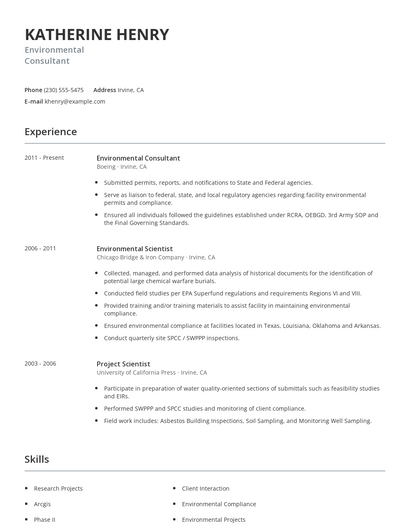
Financial regulatory consulting firms are becoming essential in the world financial markets. There are several different types of such firms, and they provide services to banks, financial institutions, and other businesses. Some of these firms specialize in particular areas of regulatory consulting such as MAS compliance, cyber risk and accounting. To make your decision easier, here are some tips:
Rosediem Consulting
Rosediem Consulting can help you deal with financial regulators. Rosediem was founded to handle the regulatory aspects of client assets nine years ago. Its services were intended to offer a complete solution that met the needs of clients. Rosediem has a solid reputation. The firm is familiar with the intricacies and flow of legal operations, as well as the financial services blueprint.
Rosediem is a market leader and has a great track record. Rosediem is available to assist with new business ventures or the sale of an existing company. The company has worked on a range of projects for clients, from asset migrations and drain-up reviews to fin-tech platforms. The firm's broad service scope has enabled it to solidify its position in the market and secure new clients.

Riddle Compliance
It is essential that any business has financial regulatory consultants. Compliance specialists are there to assist organizations in complying with regulations, adopting industry best practices and ensuring that they operate within regulatory limitations. Riddle Compliance assists organizations with compliance challenges by providing ethical and practical solutions. The firm helps organizations identify risks and develop practical, innovative solutions that can be executed within the scope of the organization's budget. The results are compliance projects that help organizations operate more efficiently and profitably within regulatory guidelines.
The firm provides practical, innovative solutions to compliance that address both industry and regulator demands. We help clients and organizations create policies, processes and procedures that meet the highest standards in corporate governance. Our experts work closely with you to design and implement the most efficient compliance strategy for each business. Riddle Compliance can provide you with a number of benefits. These are just a few of the services offered by Riddle Compliance:
Cyber Risk Services
A cybersecurity strategy consultant that is focused exclusively on the financial industry is required. These experts review the security plans of organizations and devise effective controls to meet regulatory requirements. They also work together with the board of director and the executive leadership to design the institution's overall cyber security strategy. This type of consulting focuses on cybersecurity risk management and governance while maintaining the organization's resiliency. These are some of the most commonly used cyber risk management service provided by these professionals.
Protecting sensitive data requires information security engineering. This includes conducting vulnerability assessments, security architecture reviews and threat monitoring programmes. These services can also help to reduce the risk of data theft. Threat landscape reviews are best practices for the industry and should be conducted through a managed detection and response program or proactive Threat Hunting Program. Depending on the type of information security controls in place, these services may include a combination of services. These services can help an organization decide which information security controls are needed to protect critical data.

Hogan Lovells Solutions (Transfer Pricing) Limited
Hogan Lovells' core area of practice is financial regulation consulting. The firm has recently expanded this area. Lead by former PwC regulatory consulting practice director Steve Murphy, the new practice will offer legal and non-legal services to companies facing regulatory issues. The company's services will be targeted at banks and wealth management companies as well as payment service providers.
Luxembourg has a registered office for the firm. This office includes lawyers from Europe and overseas. All of the firm's lawyers have been certified accountants and are members of The Berlin Bar. Hogan Lovells Italy is represented by its studio legale located in Milan and Rome. The company is a member on the Electronic Commerce Directive service providers registry. The firm's lawyers are qualified as "Avvocato", or "Avvocato".
FAQ
How much does it take to hire a consultant
The cost to hire a consultant depends on many factors. These factors are:
-
Project size
-
Time frame
-
Scope and nature of work
-
Fees
-
Deliverables
-
Other factors to consider include location, experience, and other considerations.
Why would a company hire a consultant?
Consultants offer expert advice to help improve your business' performance. Consultants are not there to help you sell products.
Consultants help companies make better business decisions through sound analysis and suggestions for improvement.
Senior management teams often have consultants working closely with them to help them understand their needs.
They offer coaching and leadership training to help employees achieve their highest potential.
They could advise businesses about reducing costs, streamlining processes and increasing efficiency.
What types of contracts exist for consultants?
When consultants are hired, they sign standard employment agreements. These agreements define the terms of the agreement, including how long the consultant is expected to work for the client as well as what he/she should be paid.
Contracts also specify which areas of expertise the consultant will focus on and how the consultant will be compensated. One example is that the agreement may specify that the consultant provides training sessions and workshops, webinars, seminars, or other related services.
Sometimes, the consultant simply agrees that a specific task will be completed within a set time frame.
Many consultants also sign independent contractor agreement in addition and standard employment agreements. These agreements allow the consultant not only to work for himself/herself but also provide payment.
How is consulting different from freelancing
Freelancers work as independent contractors and offer their services without the assistance of an agency or company. Hourly rates are usually charged based on the time they spend working on a client’s project. Consultants are usually employed by companies or agencies. Their salaries are usually paid monthly or annually.
Because they set their own hours and prices, freelancers are often more flexible than consultants. Consultants often offer better benefits such as vacation days and retirement plans, health insurance, and vacation days.
What is a consultant?
Consultants provide services for others. This is more than a job title. You help others achieve their goals. This involves helping them to understand their choices and making the right choices.
Consultants are skilled at solving problems and overcoming challenges that can arise during projects. Consultants can also offer advice and guidance regarding how to implement these solutions.
Any questions you have about business, technology and finance, leadership or strategy, human resource management, customer service, customer service, or any other topic, a consultant can answer them.
Statistics
- Over 50% of consultants get their first consulting client through a referral from their network. (consultingsuccess.com)
- 67% of consultants start their consulting businesses after quitting their jobs, while 33% start while they're still at their jobs. (consultingsuccess.com)
- "From there, I told them my rates were going up 25%, this is the new hourly rate, and every single one of them said 'done, fine.' (nerdwallet.com)
- According to IBISWorld, revenues in the consulting industry will exceed $261 billion in 2020. (nerdwallet.com)
- So, if you help your clients increase their sales by 33%, then use a word like “revolution” instead of “increase.” (consultingsuccess.com)
External Links
How To
What does a typical day look like for a consultant?
A typical day will vary depending on the type of work you are undertaking. However, the majority of your day will consist of research and planning, meeting clients and preparing reports.
Meetings are a common way to discuss problems and issues with clients. These meetings can be held over the telephone, online or face-to face.
It is possible that you will be asked to write proposals. These documents outline your ideas and plans, and are required by clients. These proposals will be presented to clients by you and a mentor.
You will need to create content after all your planning and preparation. Writing articles, designing websites, editing photos or conducting interviews are just some of the options.
You may need to conduct research depending on the scope of your project to find relevant statistics and figures. This could include finding out how many customers your company has and whether they purchase more than one product.
Once you have gathered enough information, it's time to present your findings to clients. You can either present your findings in writing or orally.
After your initial consultation with clients, you need to keep in touch. For example, you could call your clients periodically to check how things are going. Or send them emails asking them to confirm they have received the proposal.
Although this process can take time, it is important to stay focused and build good relationships with your clients.